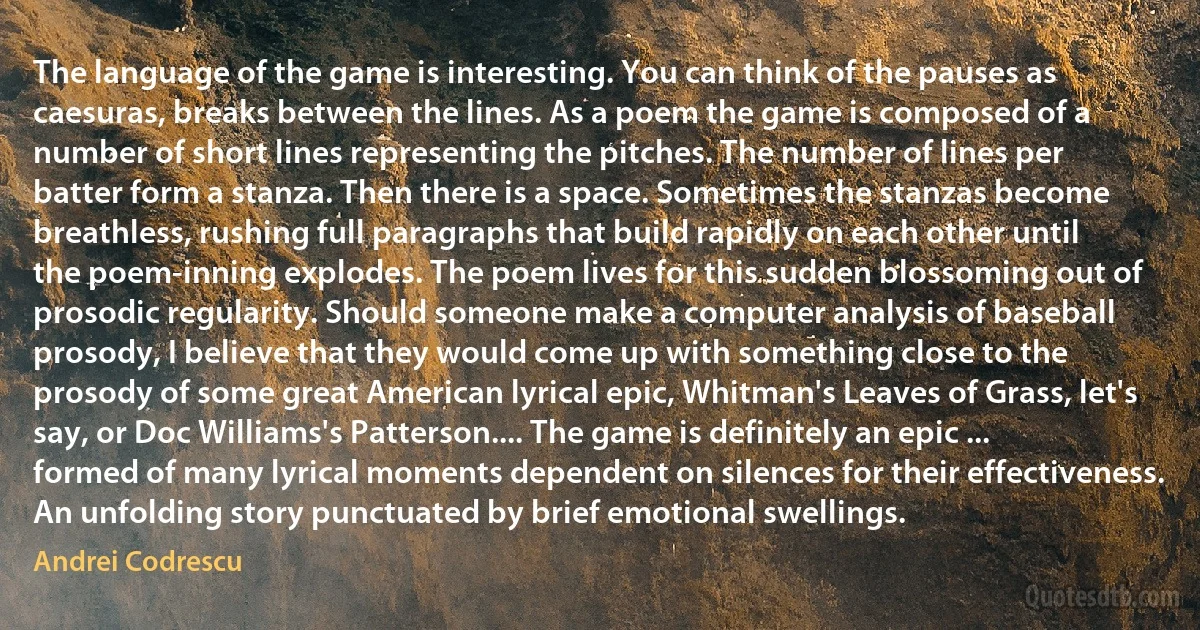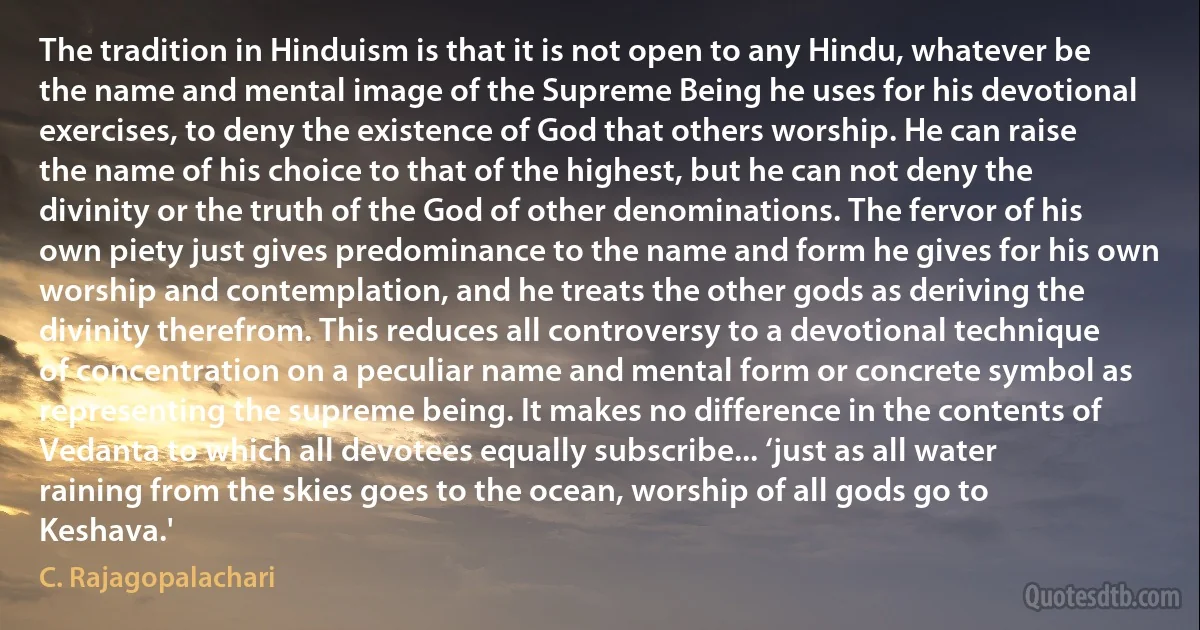Representing Quotes - page 4
What redress is now open to Mr. Bennett to clear his name, which has been smeared over every newspaper and on television and radio? He has been effectively prevented from carrying out his work in this building. What redress is open to me, if I employ someone to work with me in my duties representing the people of Islington, North and I am frustrated in doing that by an opinion offered in secret by the secret service? Is that not a negation of the democracy for which the House stands, which is meant to allow a constituency to elect a Member of Parliament to carry out his duties to the best of his ability? On this occasion, I have deliberately been frustrated by secret evidence that is not made available to me or, publicly, to anyone.

Jeremy Corbyn
The idea that voting is pointless, democracy a façade, and that no one is representing ordinary people is more resonant than ever as I leave my ordinary town behind. Amidst the guilt and anger I feel in the back of the Führer-mobile, there is hope. Whilst it's clear that on an individual, communal, and global level that radical change is necessary, I feel a powerful, transcendent optimism. I know change is possible, I know there is an alternative, because I live a completely different life to the one I was born with. I also know that the solution is not fame or money or any transient adornment of the individual. The only Revolution that can really change the world is the one in your own consciousness, and mine has already begun.

Russell Brand
I was operating under the theory that, even though Baker had been responsible for my appointment, I was representing all three minority senators-Baker, Edward Gurney of Florida, and Weicker. If differences arose within the minority there was no question about where my loyalty lay and whose directions I would take, but I believed that I should try to respond to the wishes of Weicker and Gurney in every way possible. (page 25)

Fred Thompson
This fallacious result is not... a peculiarity of classical mechanics; it is given also by a very wide class of possible systems of mechanics. This being so, no minor modification of the classical mechanics can possibly put things right. Something far more drastic is needed; we are called upon to surrender either the [1] continuity or the [2] causality of classical mechanics, or else the possibility of [3] representing changes by motions in time and space.

James Jeans
You're always, as a journalist, walking this fine line between faithfully representing the complexity of the thing you're writing about and retaining your readers. The finest piece of journalism in the world is of no use if no one reads it. And getting people to read it requires compromises and sacrifices and all kinds of things. It is very hard to get it perfectly right. But I feel like over time, most good journalists, I think, do a pretty good job of balancing those things...

Malcolm Gladwell
People at the top do not want to share their power. They've always got some marvellous reason: I'm following my religion; I'm following the laws of economics. Even Stalin: I'm representing the vanguard of the working class, so please don't cause trouble. That is the battle that every generation has, and yet we mustn't be pessimistic about it...

Tony Benn
The issues raised in the historic conflict between Charles I, resting his claim to govern Britain on the divine right of kings, and Parliament - representing, however imperfectly, a demand for the wider sharing of power - concerned the use and abuse of state power, the right of the governed to a say in their government, and the nature of political freedom. The Levellers grew out of this conflict. They represented the aspirations of working people who suffered under the persecution of kings, landowners and the priestly class, and they spoke for those who experienced the hardships of poverty and deprivation. They developed and campaigned, first with Cromwell and then against him, for a political and constitutional settlement of the civil war which would embody principles of political freedom, anticipating by a century and a half the ideas of the American and French revolutions.

Tony Benn
I have no intention of slurring over the differences we have with socialism, nor concealing my belief that we are the National Party of Great Britain, representing not narrow class interest, nor the bigotry of the left wing intellectuals, but all those who support the British tradition of democracy, of personal freedom, of personal responsibility for one's own affairs and those of one's family, with the least possible interference from the State.

Norman Tebbit
Their Lordships of the Upper House...are one member of the Parliament; and also that the Knights, Citizens and Burgesses of this House representing the whole Commons of this Realm are also another member of the same Parliament; and her Majesty the Head; and that of these three Estates doth consist the whole body of Parliament able to make laws.

William Cecil, 1st Baron Burghley
As these old soldiers, the living descendants of the spirit of Washington that made our country, go down toward the setting sun, representing the spirit of Lincoln, who saved our country, they will have the satisfaction of knowing that they are leaving behind them the same spirit, still undaunted, still ready to maintain in the future a more abiding peace and a more abounding prosperity, under which America can continue to work for the salvation of the world.

Calvin Coolidge
When I have contemplated these adjustments of business and editorial policy, it has always seemed to me that American newspapers are peculiarly representative of the practical idealism of our country. Quite recently the construction of a revenue statute resulted in giving publicity to some highly interesting facts about incomes. It must have been observed that nearly all the newspapers published these interesting facts in their news columns, while very many of them protested in their editorial columns that such publicity was a bad policy. Yet this was not inconsistent. I am referring to the incident by way of illustrating what I just said about the newspapers representing the practical idealism of America. As practical newsmen they printed the facts. As editorial idealists they protested that there ought to be no such facts available.

Calvin Coolidge
"Thy sun," says Isaiah to Jerusalem, " shall no more go down, neither shall thy moon withdraw itself; for the Lord shall be thine everlasting light, and the days of thy mourning shall be ended. Thy people also shall be all righteous; they shall inherit the land forever." Such is the type of a free people.
Our northern ancestors worshipped this tri-une Deity; Odin, the Almighty Father; Frea, his wife, emblem of universal matter; and Thor, his son, the mediator. But above all these was the Supreme God, "the author of everything that existeth, the Eternal, the Ancient, the Living and Awful Being, the Searcher into concealed things, the Being that never changeth." In the Temple of Eleusis (a sanctuary lighted only by a window in the roof, and representing the universe), the images of the Sun, Moon, and Mercury, were represented.

Albert Pike
Lastly, there are Idols which have immigrated into men's minds from the various dogmas of philosophies, and also from wrong laws of demonstration. These I call Idols of the Theater, because in my judgment all the received systems are but so many stage plays, representing worlds of their own creation after an unreal and scenic fashion.

Francis Bacon
Punishment of cadets had been artfully crafted. In the early nineteenth century, West Point officials deemed manual labor an inappropriate punishment for a cadet: It would have been an ungentlemanly task for a future officer. But they could make him do something that was tiring, embarrassing, and, most excruciating, accomplished nothing. So cadets ever since have been awarded "Area tours," each representing an hour- two hours on Friday afternoon, and then three on Saturday- walking in our dress gray uniforms with rifles across the Area. As my bemused father explained to me, the Area does not make you smarter, braver, or more expert; even trench digging would offer some tangible benefit. At the academy, where we hoarded free minutes, walking the yard meant wasted hours.

Stanley A. McChrystal
On turning 30: "I kind of feel like the same person except more time has gone by. I hate to say that I feel like an adult now. I have to admit I wish I was still 18. After all, even through the time while I was representing that wild kid, I really wasn't. I was just living my life. I was just not making movies at the time.

Leonardo DiCaprio
I have a foreboding of an America in my children's or grandchildren's time -- when the United States is a service and information economy; when nearly all the manufacturing industries have slipped away to other countries; when awesome technological powers are in the hands of a very few, and no one representing the public interest can even grasp the issues; when the people have lost the ability to set their own agendas or knowledgeably question those in authority; when, clutching our crystals and nervously consulting our horoscopes, our critical faculties in decline, unable to distinguish between what feels good and what's true, we slide, almost without noticing, back into superstition and darkness.

Carl Sagan
It is one of the advantages of the revelations which we acknowledge, that whilst they reject idolatry with its many pernicious accompaniments, they introduce the Deity to human apprehension, under an idea more personal, more determinate, more within its compass, than the theology of nature can do. And this they do by representing him exclusively under the relation in which he stands to ourselves; and, for the most part, under some precise character, resulting from that relation, or from the history of his providences. Which method suits the span of our intellects much better than the universality which enters into the idea of God, as deduced from the views of nature.

William Paley



